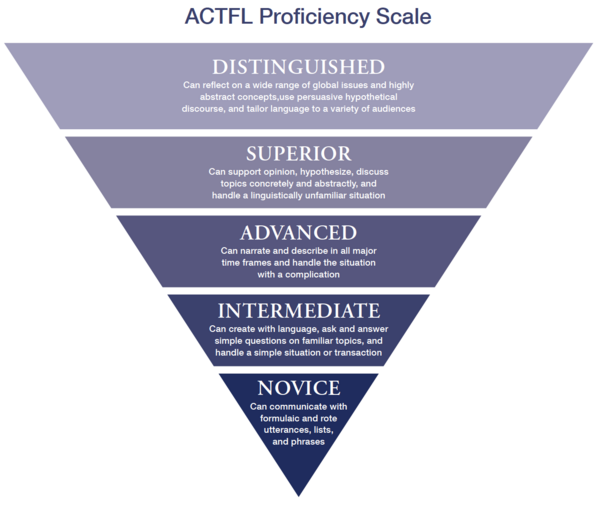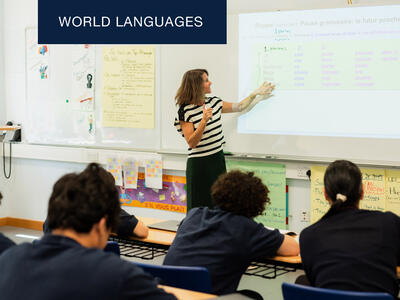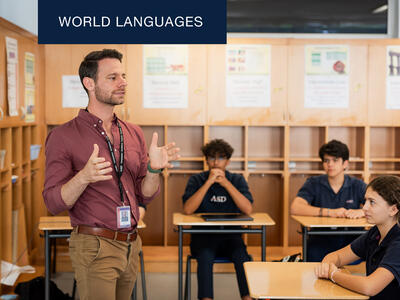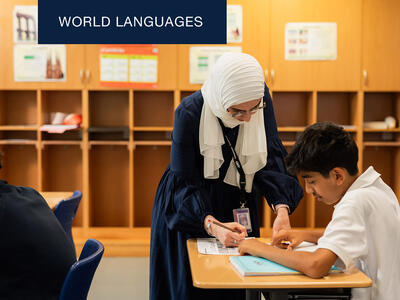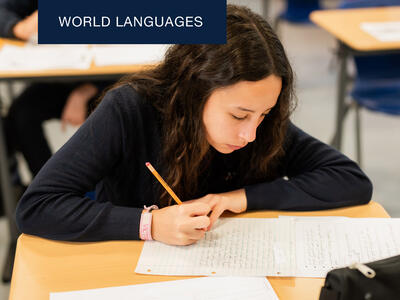The World Languages courses offer multiple opportunities for students to demonstrate continued growth as life-long language learners at novice, intermediate, or advanced levels of proficiency in interpersonal, interpretive, and presentational communication.
Graduation Requirements: 2 credits in one language (Arabic, French, Spanish)
The American School of Dubai’s World Languages Program is a performance and proficiency model, based on the American Council on the Teaching of Foreign Languages (ACTFL) Guidelines and the World-Readiness Standards for Learning Languages. The World Languages Department believes language lies at the heart of the human experience; it is essential to the education of global citizens for each student to develop a sensitivity and understanding of the similarities and differences across and between languages and cultures.
Making connections and comparisons to other languages and cultures also helps students better understand their own language and culture. Students build higher-level thinking skills through language learning; through rich communicative, cultural, and cross-curricular experiences balanced with a study of formal aspects of language, students come to express themselves and interact appropriately in authentic cross-cultural contexts.
COURSE SEQUENCE DIAGRAM
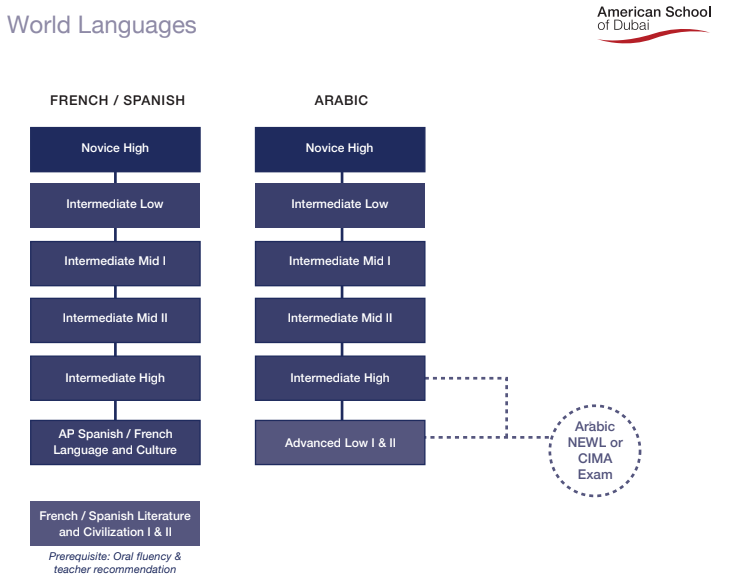
PROGRAM OVERVIEW
Through our wide range of course level offerings students have the opportunity to continue language learning throughout their 4 years of high school. When selecting the AP French/Spanish Language and Culture course, please note that ACTFL and the College Board’s anecdotal evidence shows that students who are showing evidence of Intermediate mid proficiency are likely to score a 3 (passing score) on the AP Language and Culture Exam; students showing evidence of Intermediate High proficiency are likely to score a 4 or 5; students showing evidence of Advanced level of proficiency are the most likely to score a 5 on the AP exam. Intermediate High language users are able to function at the Advanced level, but are not able to sustain that performance across the tasks and contexts of the Advanced level.
As there is no AP Arabic Language and Culture course, students who are seeking AP®-style score reports that can be used to apply for college credit and/or placement are provided with different options. One way to apply for the AP International Diploma is through the AVANT STAMP test, which is administered yearly at ASD. A minimum score of 5 on the STAMP test, equivalent to the Intermediate Mid level, qualifies students for the APID.
Another option is for students to explore the Arabic NEWL (National Exam in World Languages) or CIMA (Certificat International de Maîtrise en Arabe). These international, external exams are recommended for students with minimum Arabic World Language Intermediate High or Native Arabic Grade 10. Upon successful completion of any of these exams, an official letter from the school will be submitted to the College Board so it can be included with the student’s AP records.
Students can also make an Independent Exam Request to order and write AP exams in language classes that are not offered at ASD. These requests are reviewed by the AP Coordinator, the Counseling office and the Director of Language for approval.
When we talk about heritage speakers, we’re usually referring to a person who has learned a language informally by being exposed to it at home as opposed to having learned it formally in a school setting. It may be their native tongue – the language they identify as being their primary language – but more often than not, their heritage language becomes secondary to English, the language in which they receive their formal education and is used the most in their daily life outside the home.” (ACTFL)
There are many levels within this term. As part of the transition to High School, 8th graders who are heritage French and Spanish speakers are placed based on their assessed proficiency in the language whether or not they had been enrolled in that language in Middle School. The objective of this placement is to appropriately place students in the course that would best suit their needs as learners. In some cases, this can mean that students are placed in Spanish/French Literature and Civilization, a course designed to meet the needs of students who have exceeded the proficiency level required for success in AP. This may mean that, while students will not be eligible to take the AP course, they will be supported if and when they choose to take the AP exam for that language.

